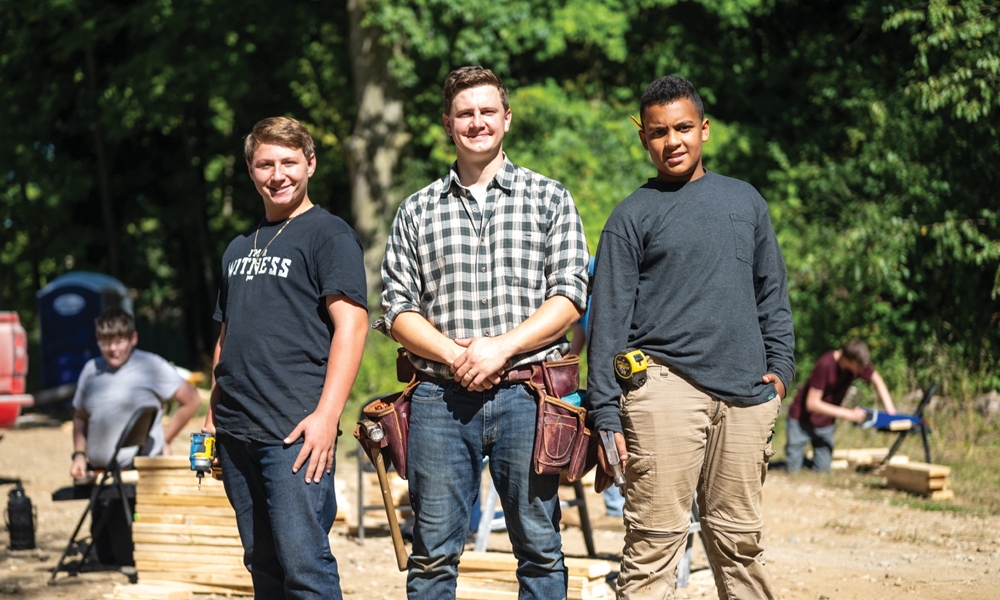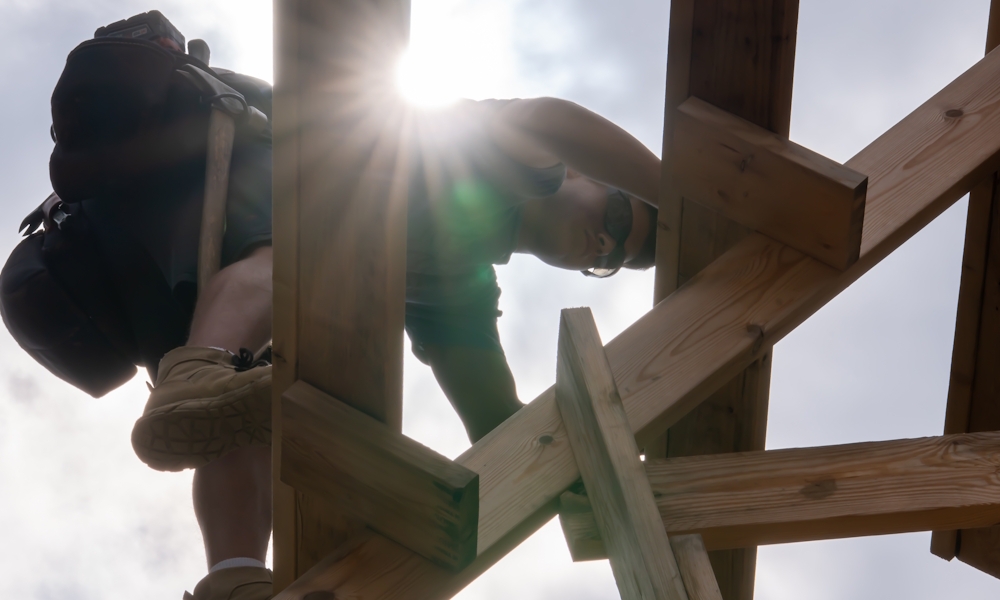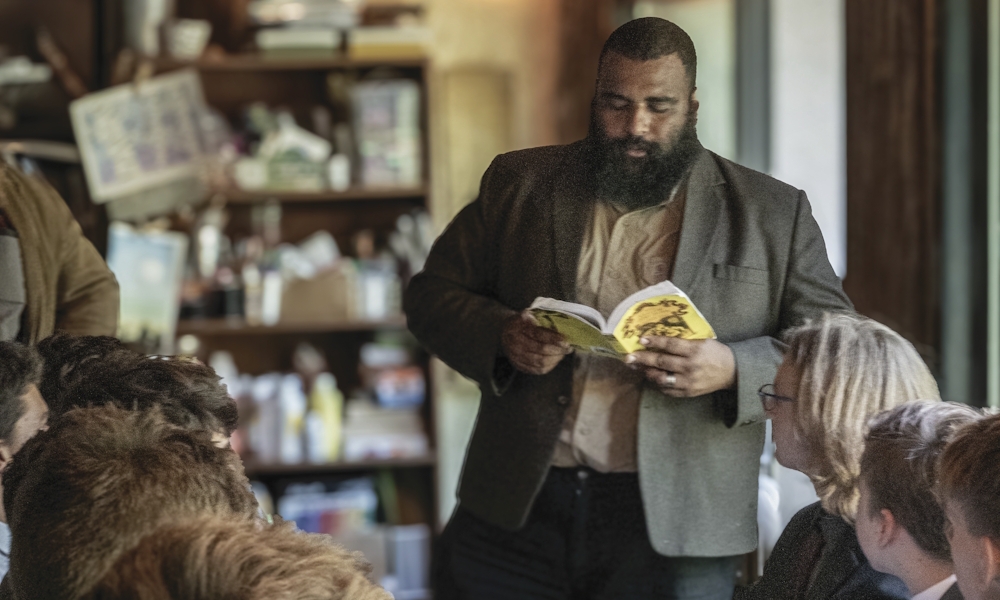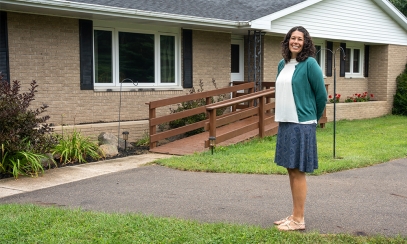
An all-around education
Introducing St. Joseph the Worker Academy
Introducing St. Joseph the Worker Academy
Forming boys into virtuous men. That’s the lofty ambition of Saint Joseph the Worker Academy, a new high school for boys in rural Washtenaw County that blends a classical curriculum with trades training and agricultural labor.
“First and foremost, we desire to produce a man who is well on the road to becoming a saint, and who is a better man than any of his teachers, because we're trying to give them an education that none of us have had,” explains Jack Carter, the academy’s Dean of Men who also teaches Literature, Latin, and Fine Arts.
“We want to form men who will be strong but who have achieved that through literature, through work, through camaraderie; men who are apt to friendship and to compassion; men who will be great husbands, men who will be great priests, who are anchored in our Western tradition; men who are fundamentally honorable and devoted to God through right action and duty.”
The new school welcomed its first intake of students in August of this year. In total, 17 boys are currently enrolled. Eventually, staff would like to see that number rise to around 50.
“On that first day, all our families were invited out here,” recalls Headmaster, Inshal Chenet, “we had sports and games, we read the work of Maria Von Trapp, The Land Without a Sunday, and discussed it as a group, we had Holy Mass, of course, and it was just a good, festive, great start to the school year.”
In the weeks since, says Chenet, both staff and students have established a settled daily routine of prayer and work. Ora et labora. The building of a new school community and, indeed, a new school building too. On the day of our visit, the boys were busily making wooden shelves which are destined for a future school library.
“I feel it's really amazing because we're literally building our school,” says 15-year-old freshman, Danny Dirkes, “so after we move off and go to college and grow up and have kids, we'll be able to say, ‘We did that! We built this!’ and I think that's amazing.”
The genesis of the new school can be pinpointed to a specific date: May 1, 2021. A group of local Catholic fathers were gathered to celebrate the Feast of Saint Joseph the Worker. The conversation turned to the topic of boys’ education. That led to four years of monthly prayer, discussion, and study, with the small group of dads consisting of businessmen, teachers, and tradesmen.
Collectively, they found themselves drawn towards the ideals and ideas of two notable Catholic educators. First, Saint John Bosco (1815 – 1888), an Italian priest who pioneered a new way of educating disadvantaged boys in industrialized Turin that was rooted in love rather than punishment. Second, John Senior (1923 – 1999), a professor of classics at the University of Kansas who was a key figure in creating the college’s Integrated Humanities Program in the 1970s, which inspired many students to convert to Catholicism.
“Saint John Bosco’s idea was that boys engage better in their studies when those studies are paired with productive physical work and taught by teachers they can respect,” explains Joseph Fredriksson who teaches Theology, History, Mathematics, and Literature.
17-year-old junior, Joey Jobst, who was previously home-schooled, agrees, “I've done trades for a few years now and ever since I started, I have found that I have a love for it, just working with my hands, just get a greater appreciation for the way stuff is made and built.”
While a training in the trades is a key component of life at Saint Joseph the Worker Academy, the staff stress that it is not per se “a trades school”.
“No. We are preparing boys for diverse paths after graduation,” clarifies Fredriksson, “that includes collegiate education, seminary, military service, or fine arts, while reinforcing manhood and responsibility through hands-on experiences such as our recent barn-raising.”
As with Chenet and Carter, Fredriksson is a graduate of Wyoming Catholic College, an educational foundation whose establishment in 2005 was also informed by the work of John Senior.
“Our classical curriculum at Saint Joseph is similarly inspired by Senior’s works which emphasize both imagination and memory through fruitful contact with the good, true, and beautiful,” adds Carter.
Underpinning daily life at Saint Joseph the Worker Academy is prayer, both the Liturgy of the Hours – which is communally chanted in Latin – and daily Mass.
“The fundamental class that we have here is the Mass, right?” say Chenet, “after all, Christ Jesus is our most important and our greatest teacher.”
“So, every day we have a local priest come out here to offer Mass or we drive to a local parish and, thankfully, there are several churches within 10 to 15 minutes of here.”
On the day we visit, the boys pause their studies prior to midday to travel to Mass at Saint Thomas the Apostle in Ann Arbor.
In talking with the boys, the word that is repeatedly deployed to describe their new school life is “adventure”.
“It is certainly an adventure,” says 15-year-old junior, Dominic Dougeveto, “in our history class today we were talking about the American pioneers, and there is a sense of that here, an adventurous spirit that's really phenomenal to be a part of.”





